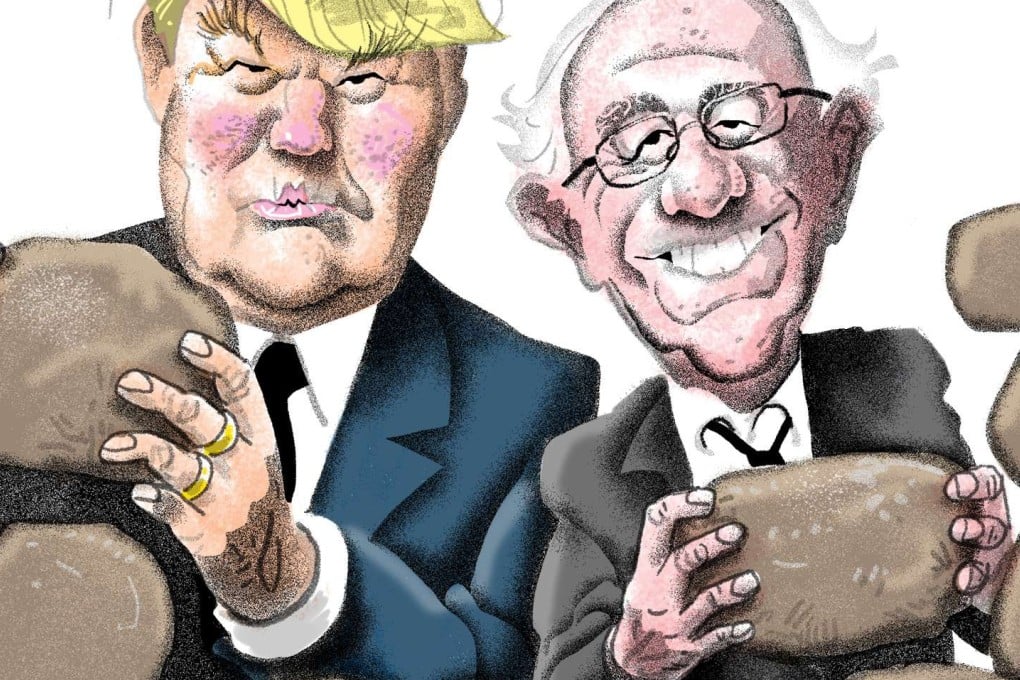US presidential hopefuls Donald Trump and Bernie Sanders provoke chills – and scorn – in East Asia
Niv Horesh and Yumiko Kaneko say watching the US presidential race from afar, many in the region have been alarmed by the isolationist tendencies of some of its leading candidates


What would a Donald Trump presidency mean for US trade and diplomacy within Asia?
The prospect of Trump winning the Republican Party nomination has, in particular, stoked speculation of intensifying US isolationism in the years to come, at a time when Russia and China are ramping up their global leadership aspirations.

‘We have tremendous economic power over China’: Donald Trump vows to use trade to punish Beijing over South China Sea
To make matters worse, these remarks came in just when tensions were rising fast over China’s dredging activity in the South China Sea, and as North Korea was preparing to test yet another ballistic missile. The collateral damage to Trump’s campaign may turn out to be very serious, as several long-serving US diplomats have come out to condemn his stance, only days after he called Nato “obsolete”, and four months after he sparked outrage with his calls to ban Muslims from entering the country.

Asians worried about Donald Trump’s brashness see hope in Hillary Clinton’s nuanced stance on Islam and China
